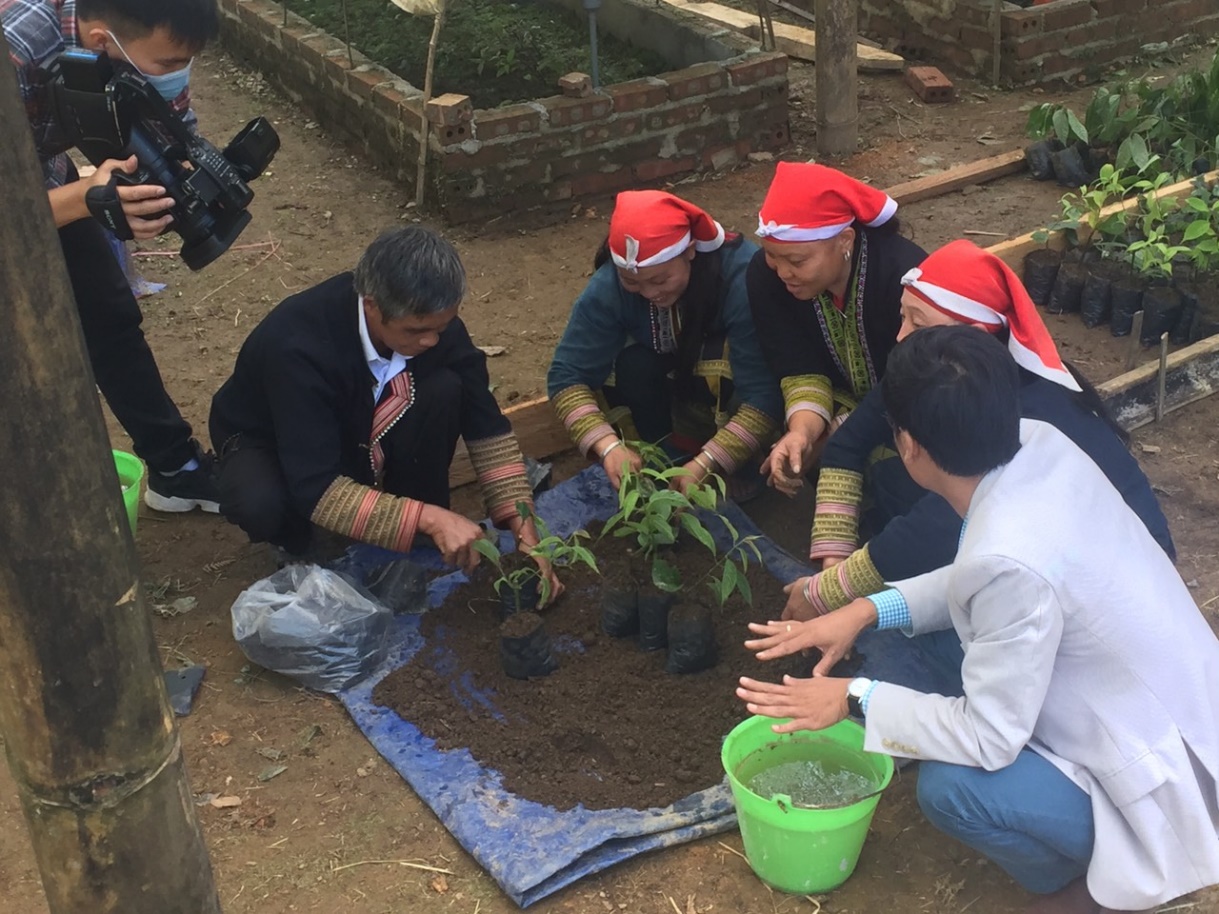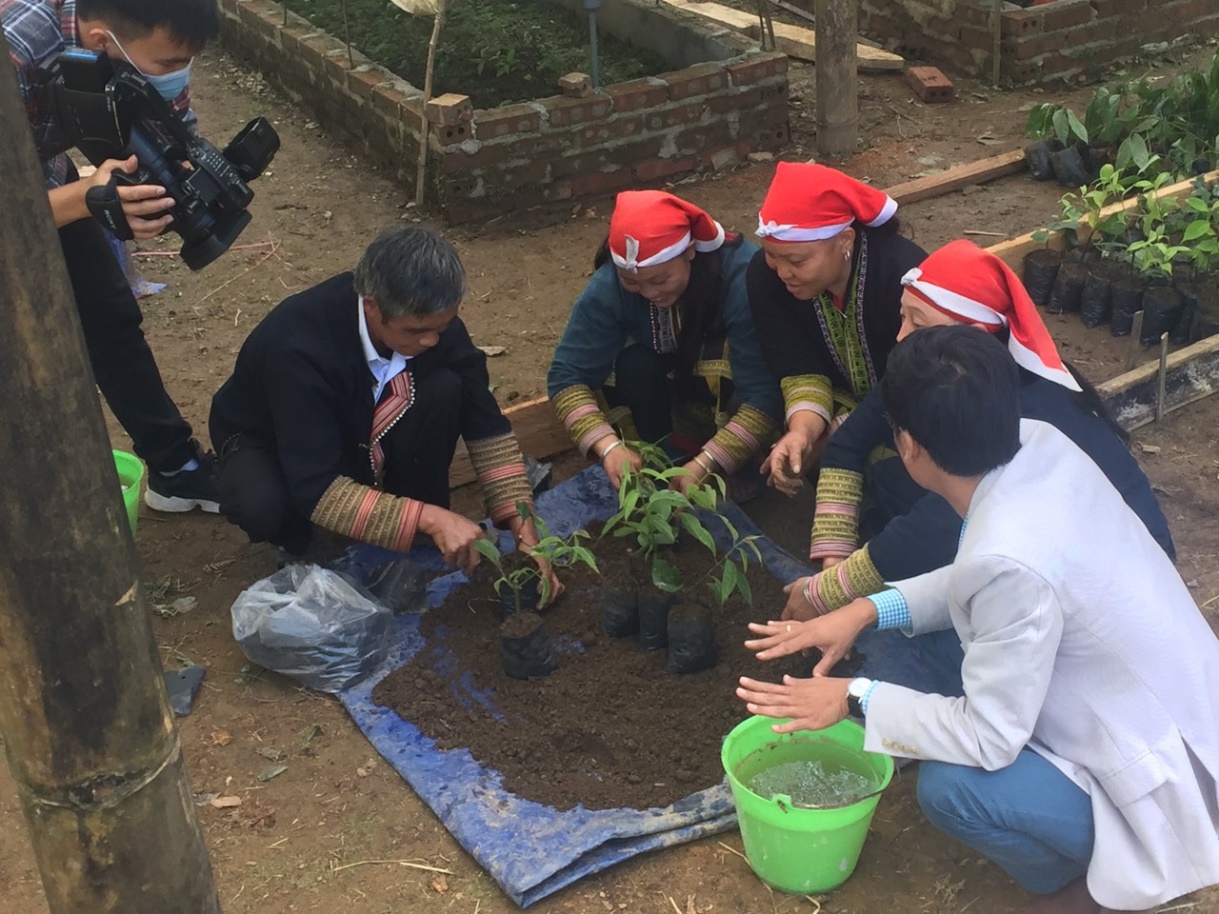

29/10/2021
In order to contribute to the conservation and sustainable use of biodiversity, in the past time (October 2016 - May 2021), the Vietnam Environment Administration has implemented the Project "Capacity building for ratification and implementation of the Nagoya Protocol on access to genetic resources and benefit sharing in Việt Nam (ABS)”. The Project has just ended with the achieved results such as development of a system of policies and documents on management, access to genetic resources and benefit sharing; Support to establish mechanisms for accessing genetic resources and benefit sharing; especially the pilot implementation of the public-private partnership model on access to genetic resources and benefit sharing in Lào Cai. On this occasion, Vietnam Environment Administration Magazine (VEM) had an interview with Ms. Hoàng Thị Thanh Nhàn - Deputy Director of the Nature and Biodiversity Conservation Agency, Deputy Director of ABS Project.
VEM: Could you please tell me, what does the implementation of the ABS project mean in the current context of Việt Nam?
Ms. Hoàng Thị Thanh Nhàn: The Nagoya Protocol on access to genetic resources and fair and equitable sharing of benefits from the use of genetic resources was adopted at the 10th Conference of the Parties to the Convention on Biological Diversity on October 29th, 2010, in Nagoya, Japan.
The objective of the Nagoya Protocol on ABS is to promote fair and equitable sharing of benefits arising from the use of genetic resources, in particular, emphasizing the sovereignty of the providing countries and the responsibility of the users who access to genetic resources must share benefits with providers of genetic resources, contribute to biodiversity conservation and sustainable use of its components.
Việt Nam is one of the biodiversity centers of the world with many precious and endemic genetic resources. Especially, genetic resources are even more meaningful to Việt Nam when the country’s economy is still heavily dependent on natural resources, and agriculture still accounts for an important part of the GDP. Many genetic resources of Việt Nam have been sent abroad for storage, research and development of commercial products. However, before the Nagoya Protocol took effect, Việt Nam did not have enough legal corridor to control and protect its sovereignty over the loss of genetic resources.

Represent of Sapppanapro Company and ethnic groups grow raw medical plants
In order to promote the protection of the country's rights to genetic resources within its territory, Việt Nam has ratified and became the 31st member to join the Nagoya Protocol on access to genetic resources and fair and equitable sharing of benefits from the use of genetic resources. As required by the Protocol, the Parties should establish a legal system, administrative agencies and establish favorable conditions to promote ABS. Ministry of Natural Resources and Environment (MONRE) is the national focal point to advice the Government on implementation of these requirements.
The Project "Strengthening capacity for the ratification and implementation of the Nagoya Protocol on access to genetic resources and benefit sharing in Việt Nam" funded by the Global Environment Facility was implemented in the period 2016 - 2021, that has timely supported the MONRE to carry out the above task, contributing to support the strengthening of national capacity in the implementation of the Nagoya Protocol on access to genetic resources and fair and equitable sharing of benefits from the use of genetic resources.
Through the Project, the legal framework on ABS was formed, the awareness and capacity of stakeholders were developed and activities to implement the ABS Protocol were effectively implemented.
VEM: Could you tell us about some outstanding results of the ABS Project?
Ms. Hoàng Thị Thanh Nhàn: After 4 years of implementing the ABS Project, many activities have been implemented and achieved remarkable results, specifically:
Forming a legal framework for ABS management: Legal documents have been developed, submitted for promulgation and implemented within the support of the ABS Project including Decree No. 59/2017/ND-CP on management access to genetic resources and benefit sharing from the use of genetic resources, Circular No. 10/2020/TT-BTNMT providing guidance on reporting forms on access to genetic resources and benefit sharing, Circular No. 15/2019 /TT-BTNMT stipulates the organization and operation of the Council for appraisal of dossiers of application for a license to access genetic resources for research for commercial purposes and commercial product development. This is the necessary legal framework to carry out activities of accessing genetic resources and sharing benefits in Việt Nam.
Capacity to enforce ABS regulations has been strengthened: Through the ABS Project, the capacity for management of access to genetic resources and benefit sharing of state management agencies, especially the two national competent authorities, MONRE and the Ministry of Agriculture and Rural Development, has been enhanced to handle dossiers, applications for licensing access to genetic resources and benefit sharing, dossiers of transferring genetic resources abroad. Not only that, the ABS Project also promotes cooperation between national authorities and other agencies in the management of genetic resources and traditional knowledge associated with genetic resources such as the Department of Science and Technology for Economic Technical Branches, the Department of Intellectual Property (Ministry of Science and Technology), Institute of Medicine (Ministry of Health)… In addition, the ABS Project also supports the establishment of tools to support management of access to genetic resources such as ABS website, national genetic resource database management software...
Awareness of ABS has been raised: Through communication, training and awareness raising programs, information about ABS has been disseminated to many stakeholders, including relevant authorities such as natural resources and environment, science and technology, agriculture and rural development at Central and local levels, research institutes, universities, private companies operating in the field of ABS. As a result, thanks to understanding of relevant stakeholders, the process of implementing ABS regulations is facilitated.
Creating a public-private partnership model on access to genetic resources and benefit sharing: In particular, the project has successfully implemented a pilot model of public-private partnership on access to genetic resources and benefit sharing in Lào Cai Province. Accordingly, the pilot project supports the establishment of ABS agreements (contracts), including supporting Sapanapro Company to develop the product of Dao's Spa pain relief massage oil. Benefit obtained from the commercialization of Dao' Spa Massage products is shared with local people in two forms: Benefit sharing contract between Sapanapro Company - a product manufacturing and trading products and 9 H’Mông and Dao healers - who provide knowledge about medicinal plants/pain relievers as the initial basis for research and product development; Contract on access to genetic resources and benefit sharing between Sapanapro Company and groups/households that grow and collect raw medicinal plants. These contracts have been negotiated, agreed between the parties and established in accordance with the form specified in Decree No. 59/2017/ND-CP.
Overall, the project's results have contributed positively to the implementation of the Nagoya Protocol on ABS in Việt Nam and shared experiences at regional and international forums.
VEM: How do you evaluate the effectiveness, impact and sustainability of the Project?
Ms. Hoàng Thị Thanh Nhàn: The implementation of the Project has created a legal environment to develop the market for access to genetic resources and ensure the fair and reasonable rights and interests of all parties when accessing genetic resources in Việt Nam. The sustainability of the Project is reflected in the formation of a favorable legal environment for the implementation of ABS, raising the awareness of stakeholders and building the capacity of the competent authorities in Việt Nam to implement requirements on access to genetic resources and benefit sharing from access to genetic resources, especially in the implementation, compliance monitoring and supervising within the framework of national ABS regulations. Providers will be more aware of the value of the genetic resources in their possession and will be more competent in their ability to negotiate with users in consistent with ABS principles. Users will be more aware of their responsibility to share genetic resource benefits with providers, thereby creating mutual agree terms (MATs) to make the use of genetic resources transparently for research and commercial purposes, as well as ensuring the benefits from the use of genetic resources in fair and equitable sharing between the state and the community. This will create the basis for ensuring the sustainable use of genetic resource and ABS management, contributing to biodiversity conservation and social security.

The Project has supported Sapanapro Company to produce Dao's Spa pain relief massage oil
VEM: From the results of the Project, what solutions would you like to suggest to effectively manage access to genetic resources and fair and equitable sharing of benefits arising from use of genetic resources in Việt Nam?
Ms. Hoàng Thị Thanh Nhàn: In order to effectively manage access to genetic resources and the fair and equitable sharing of benefits arising from the use of genetic resources in Việt Nam, in my opinion, it is necessary to disseminate experiences and replicate the model of public-private partnership in genetic resources conservation and ABS; continue to raise awareness of ABS, especially for the business community and relevant researchers to understand and implement ABS regulations; establish mechanisms to protect traditional knowledge associated with genetic resources; amend inappropriate content in the Law on Biodiversity on issues related to ABS, continue to research and to develop a mechanism to use benefits from ABS to support biodiversity conservation.
VEM: Sincerely, thank you!
Nguyên Hằng
(Source: Vietnam Environment Administration Magazine, English Edition III - 2021)